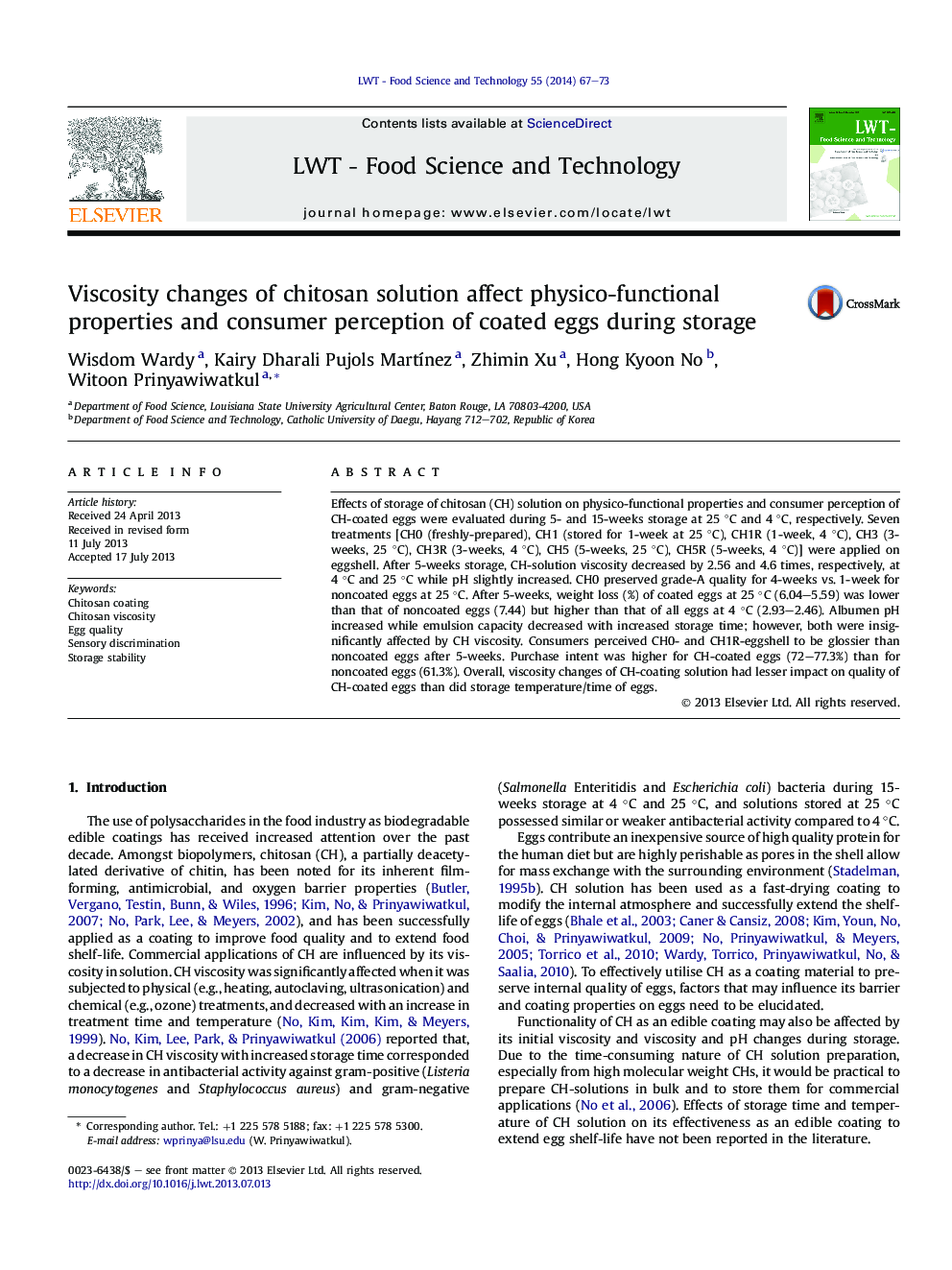| Article ID | Journal | Published Year | Pages | File Type |
|---|---|---|---|---|
| 6403857 | LWT - Food Science and Technology | 2014 | 7 Pages |
â¢Chitosan coating and refrigeration preserve internal quality of eggs.â¢Viscosity of chitosan solution decreased with increased storage time.â¢Viscosity of chitosan solution decreased with increased storage temperature.â¢Viscosity of chitosan solution had minimal impact on internal quality of eggs.
Effects of storage of chitosan (CH) solution on physico-functional properties and consumer perception of CH-coated eggs were evaluated during 5- and 15-weeks storage at 25 °C and 4 °C, respectively. Seven treatments [CH0 (freshly-prepared), CH1 (stored for 1-week at 25 °C), CH1R (1-week, 4 °C), CH3 (3-weeks, 25 °C), CH3R (3-weeks, 4 °C), CH5 (5-weeks, 25 °C), CH5R (5-weeks, 4 °C)] were applied on eggshell. After 5-weeks storage, CH-solution viscosity decreased by 2.56 and 4.6 times, respectively, at 4 °C and 25 °C while pH slightly increased. CH0 preserved grade-A quality for 4-weeks vs. 1-week for noncoated eggs at 25 °C. After 5-weeks, weight loss (%) of coated eggs at 25 °C (6.04-5.59) was lower than that of noncoated eggs (7.44) but higher than that of all eggs at 4 °C (2.93-2.46). Albumen pH increased while emulsion capacity decreased with increased storage time; however, both were insignificantly affected by CH viscosity. Consumers perceived CH0- and CH1R-eggshell to be glossier than noncoated eggs after 5-weeks. Purchase intent was higher for CH-coated eggs (72-77.3%) than for noncoated eggs (61.3%). Overall, viscosity changes of CH-coating solution had lesser impact on quality of CH-coated eggs than did storage temperature/time of eggs.
